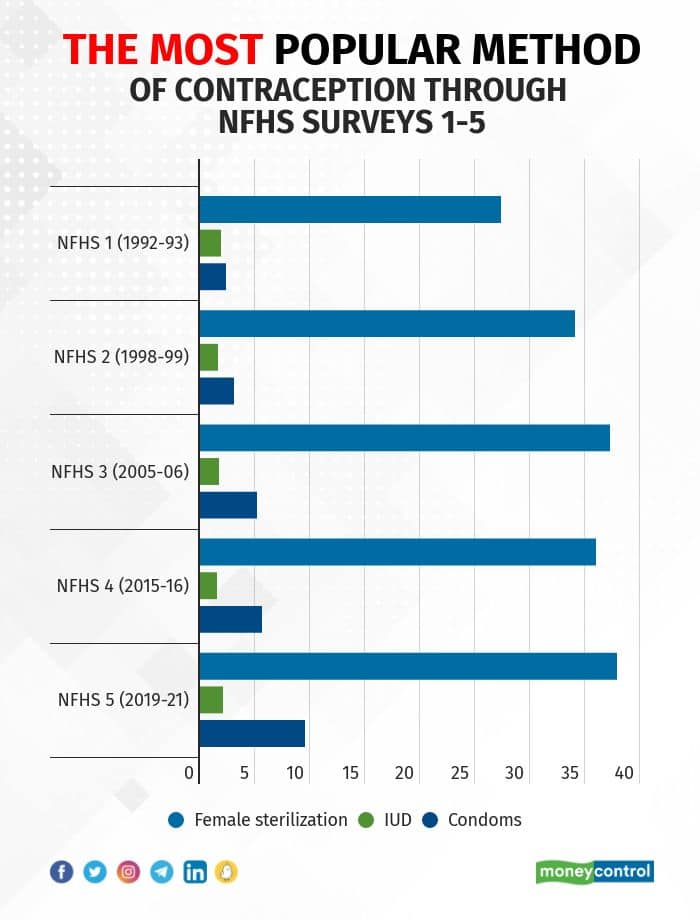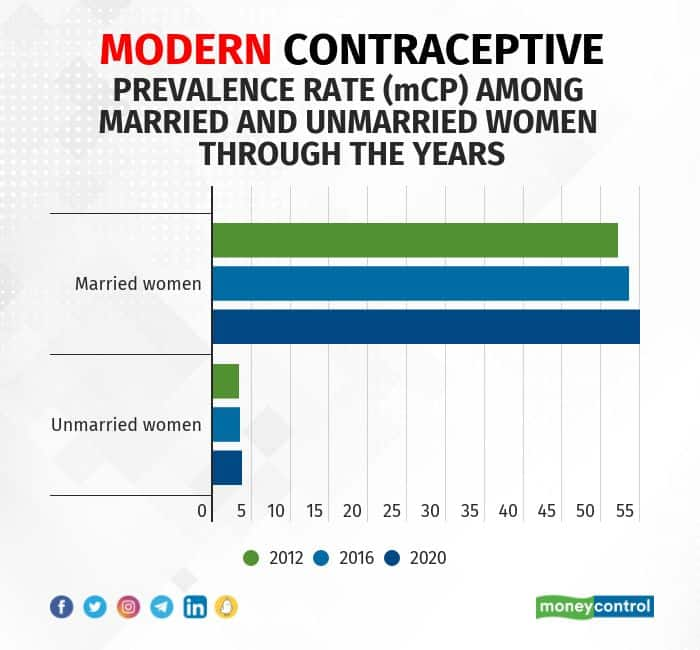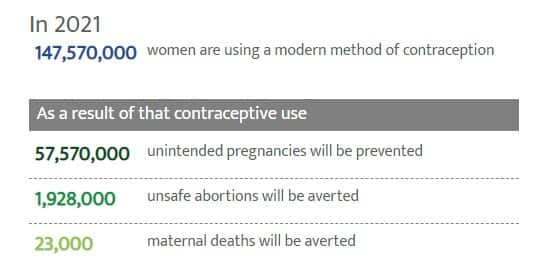



India is home to over 1.3 billion people, making it the second most populous country in the world and one of the fastest-growing economies. In 1952, India became the first nation in the world to implement a national family planning programme. Its goals have evolved over time, and it is now positioned to not only stabilise the population but also promote reproductive health and reduce maternal, infant and child mortality. As a result, traditional or natural rhythm contraceptive practices have shifted toward modern methods like condoms, diaphragms, pills, and injectables.

According to the last two NFHS (National Family Health Survey), more than 99 percent of married men and women between the ages of 15 and 49 are aware of at least one modern method of contraception. Despite the knowledge, men remained largely uninvolved in the family planning process.
The survey focuses solely on women, and it shows that the usage of modern methods of contraception has increased from 47.8 percent to 56.5 percent between the last two surveys.
It can also be observed that female sterilisation has been the most popular method of contraception since the beginning.

When compared to male sterilisation, female sterilisation is a much more invasive and painful procedure. It requires women to go under general anaesthesia which puts their life at risk. Despite this, there is a striking gap between female and male sterilisation across states in 2021. The graph below puts this in perspective.

Dr Nidhi Chauhan, a consulting gynaecologist at Saifee Hospital, Mumbai told Moneycontrol, "Vasectomies can be performed even without a scalpel these days, and so the failure rate is over 10 times lesser than that of a tubectomy. The only hindrances are the myths that it can cause prostate health disorders and the acceptance that it does not make you less 'manly'."
According to the World Family Planning 2020 report, there has been an increase in the number of women desiring to use family planning over the past two decades. As of 2020, nearly 1.1 billion women worldwide used a modern contraceptive method.
A Track20 report observed that the modern contraceptive prevalence rate (mCPR) among married women increased from 53.6 percent to 55 percent from 2016 to 2020. In the same period, mCPR among unmarried women increased from 3.5 percent to 3.7 percent.

Modern contraception has helped save lives and avoid unwanted pregnancies to a large extent. Research shows that smaller families can have a positive effect on maternal health and infant mortality.

However, in India, the responsibility of contraception still largely falls on women. In order to make the family planning process open and safe, it is pertinent that all modern methods are understood and both men and women are involved in the process.
Discover the latest Business News, Sensex, and Nifty updates. Obtain Personal Finance insights, tax queries, and expert opinions on Moneycontrol or download the Moneycontrol App to stay updated!
Find the best of Al News in one place, specially curated for you every weekend.
Stay on top of the latest tech trends and biggest startup news.